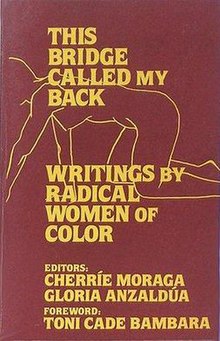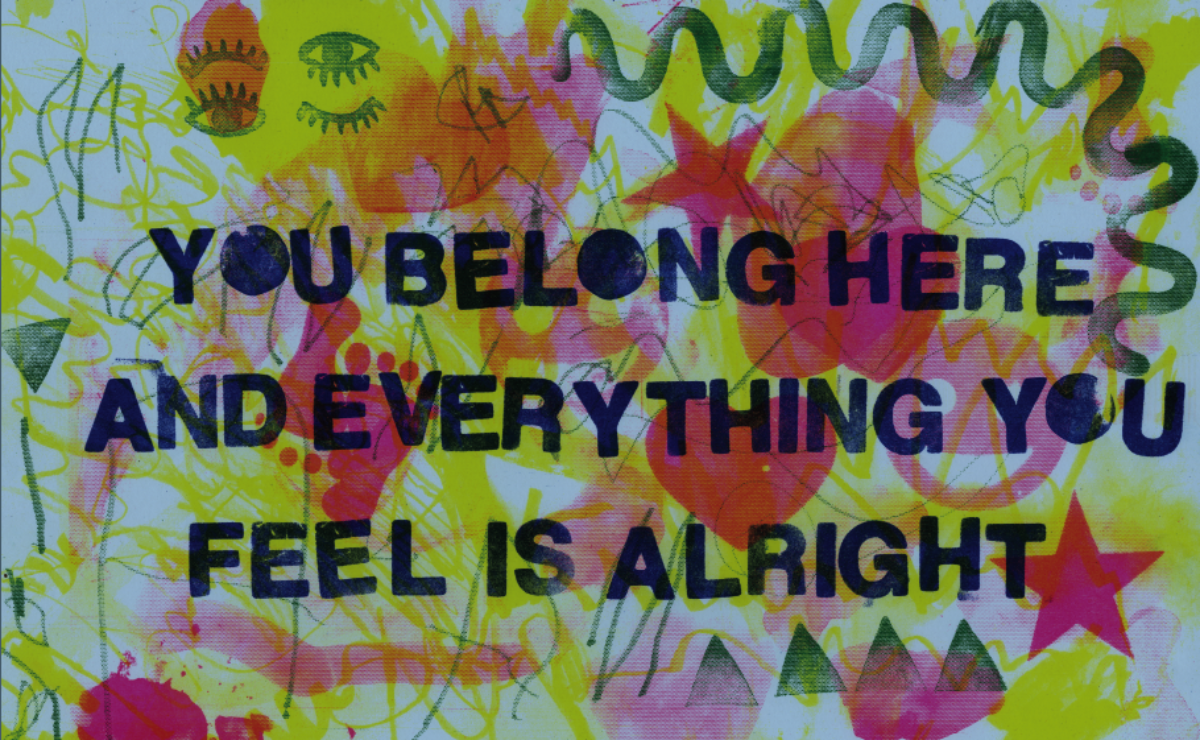OVERVIEW
Welcome to Week 5 of Introduction to Gender and Women’s Studies!

This week, we will read women of color feminist texts from the late 1970s into the early 1980s.
The first two readings for this week are from This Bridge Called My Back: Writings By Radical Women of Color (1981) edited by Gloria Anzaldúa and Cherrie Moraga. This collection was the first of its kind. It brought together writing from Black, Latinx, indigenous and Asian American women, many of whom identified as lesbian or queer, to articulate what feminisms meant for them as women of color. Much of this book comes out of the frustrations that women of color felt with the mainstream women’s movement and its inability to engage issues of racism and class inequality as part of its feminism.
The next reading is from Borderlands/La Frontera: The New Mestiza by Gloria Anzaldúa. The author is a Chicana lesbian feminist who grew up in the “borderlands” between the U.S. and Mexico and she works with the concept of “borders” to write about her own life and to engage issues of gender, race/ethnicity, colonialism, language, and identity.
(On a personal note! I read these two books in my Introduction to Women’s Studies class in the early 1990s when I was in college in the Midwest. And, then I basically slept with them under my pillow for years– to say they changed my life is an understatement! At that point, I had barely encountered any feminism that also talked about racism, being from a working-class community, the impacts of colonialism and migration on families, and so on. Most of what I had been exposed to had been the Gloria Steinem versions of feminism, which I was excited to learn about but also was not as personally relatable. Reading This Bridge and Borderlands is what led me to decide to major in Gender and Women’s Studies.)


READINGS
- The Combahee River Collective, “A Black Feminist Statement” (1977).
- This statement is written by the Combahee River Collective, a Black feminist lesbian socialist group that was based in Boston from 1974-1980.
- As you read, consider what the authors say about why there is a need for this statement; how they see the position of Black women; what is the role of socialism in their statement and why?
- Carillo, “And When You Leave, Take Your Pictures With You”
- This poem by indigenous writer Jo Carillo is written about racism in the women’s movement.
- As you read, consider what Carillo says about their experiences. How does racism operate in the women’s movement? What do you think about their choice to express their feelings through poetry?
- Anzaldúa “La Conciencia de la Mestiza: Towards a New Consciousness”
- [First, learn more about the use of the term Chicana by feminists like Anzaldúa in this short interview (4 minutes), with Cherrie Moraga here.]
- As you read this piece, you’ll notice that some of the sentences/phrases are in Spanish. Some of you may be able to understand what the author writes and some of you will not. Don’t worry about translating! Anzaldúa wrote at a time before we had Google translate at our fingertips so she knows that not all readers will be able to understand what she is writing. Instead, pay attention to how the use of language affects you, what it does for you as a reader when you can (or can not) understand what she writes.
- What does Anzaldúa say about the border? How does she use the concept of mestiza? What does this mean for her?
(OPTIONAL) Watch a film
Born in Flames (1983) (81 minutes), available on BMCC’s KANOPY Database. To access this database, log in to the BMCC Library and go to Databases. Click on the link for Kanopy. The first time you use it, you will have to create an account with your email address and password (it’s quick!).
Born in Flames is a “documentary-style feminist fiction film” that is set in some time in the future, after a peaceful socialist revolution. The story involves two feminist groups, underground radio station, a women’s army, street harassment, and direct action. I don’t want to say too much more before you watch it. If you’re able to see it, please do– it’s a classic film from this time period and engages so many of the critiques and visions from this week’s readings.
Discussion Board Post #5 (due 3/8)
Pick 2-3 of the major themes from this week’s readings (and film) and write about them. You can use the questions that I wrote for each reading as a guide to the themes.
Using quotes from the readings (or scenes from the film), write about the critiques, analysis, and vision that women of color feminists from this time period were engaging. What are your thoughts about their writing? Do you see these issues as resonant today, or do you feel as though they are no longer relevant? Be specific.
Instructions/How to post here
Please title your post: First Name Last Name: DB 5 and select “DB 5” as the category for your post.
